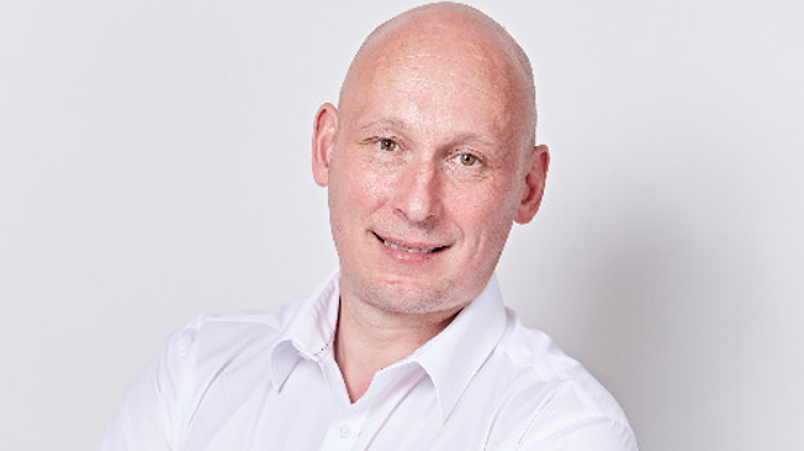Secret media rebates shift as agency groups find new margins from legal media arbitrage, says global boss at billion dollar barter company Active International

Active boss Dean Wilson: "The Australian marketplace is probably still hooked on the rebate, the free space, the monetisation of that... Australia has got some way to go on compliance.”
The controversy that erupted five years ago over undisclosed rebates between media companies and media agencies are on the wane but have taken a new form as holding companies use their treasury departments to buy heavily discounted advertising inventory from media owners in advance and on-sell to advertisers at lucrative margins.
What you need to know:
- Active International's global CEO, Dean Wilson, says the barter group will exchange circa $1.2 billion in media advertising inventory around the world, especially for consumer products.
- Media owners prefer offloading discounted ad space to the likes of Active over the agency groups, he says, which will drive growth to $1.8bn over the next five years.
- "Media owners would give it all to us if they could," he says.
- Economic uncertainties will start to play out in the December quarter of this year, he adds. That could play well for a company like his.
Media owners would give it all to us if they could because they are leveraged by the [agency] groups as part of much larger negotiations. They have to participate in those deals.
The global CEO of barter group, Active International, Dean Wilson, which will exchange circa $1.2 billion this year in media advertising inventory globally, mostly for consumer products from the likes of Colgate, Mars and Reckitt that it then offloads, said his company was facing more competition from holding company media groups wanting to buy up ad inventory from media owners to on-sell to their clients. But he remained bullish on the growth outlook for his business.
Consumer packaged goods companies would face more pressures to offload unsold inventory as economic conditions tightened globally, Wilson said, with the crunch likely to hit from the December quarter. But he said Active’s ability to barter media space in exchange for branded products, and media owners' preference to offload their discounted ad space in advance to Active over agency groups, would see the company grow to about $1.8bn in bartered media over the next five years.
“If a [media] vendor had their choice, they’d give it all to us, to be honest,” Wilson told Mi3 during a recent visit to his Australian operation. “Media owners would give it all to us if they could because they are leveraged by the [agency] groups as part of much larger negotiations. They have to participate in those deals.”
Wilson said media owners preferred dealing with Active International because “we’re not twisting anyone’s arm behind their back.”
The inference from Wilson is that agency groups leverage their collective client advertising budgets and the prospect of moving share allocations between different media groups to ensure they were allocated heavily discounted inventory to on-sell via their own non-disclosed treasury-funded advertising deals to clients.
“We will go to all the [TV] networks, for example, and say if you want to pay for something, we'll write the cheque for it, you pay us in [ad] inventory, and then we'll bring you new or incremental business,” Wilson said. “The agencies are really going, well, 'we just want more from you for the same'. So we're a more attractive way to offload excess inventory or to do deals with because we're more about how can we help a business.”
The defence from agency groups is that the continued downward pressure from advertisers on their service fees for media buying and planning meant they had to make margins elsewhere. The ability for their treasury departments to buy media inventory in advance and on-sell to advertisers at a discounted rate to what they would normally get through their agency-negotiated volume deals, meant agencies did not have a fiduciary duty to act in the utmost interest of their clients. By becoming a “principal”, or owner of the advertising inventory and taking a trading risk, agencies can work to maximum and undisclosed margins, otherwise known as legal arbitrage.
Wilson said it was a particular characteristic of the Australian media market which was fluid, and less commoditised than others like the UK. Active also owns a media agency in Australia called Involved, which it rebranded after acquiring independent shop, Paykel Media.
“There's less transparency about how agencies earn their income here,” he said. “In the United Kingdom, agencies are, let's say, five years ahead on being clear with their customers about how they're making their money and having models that are more equitable between the customer and the agency, based on outcomes and shared success. The Australian marketplace is probably still hooked on the rebate, the free space, the monetisation of that and that's got some way to go. Australia has got some way to go on compliance.”
More broadly, Wilson said he expected tougher economic conditions globally to work in Active’s favour – more unsold stock meant companies had a bigger appetite to barter for media inventory.
“The [economic] uncertainties are taking longer to feed through than people might have anticipated but they’re certainly preparing for the worst in the fourth quarter, the December quarter,” he said. “Even though some of them have got really strong growth, I know a couple of out-of-home specialists that have hiring freezes even though they’re up 30 per cent year-on-year. They’re expecting it to be quite tough towards the end of the year.”


